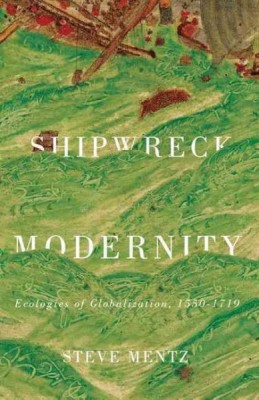| Shipwreck Modernity: Ecologies of Globalization, 1550-1719 Contributor(s): Mentz, Steve (Author) |
|
 |
ISBN: 0816691061 ISBN-13: 9780816691067 Publisher: University of Minnesota Press OUR PRICE: $29.70 Product Type: Paperback - Other Formats Published: December 2015 |
| Additional Information |
| BISAC Categories: - Literary Criticism | Semiotics & Theory - Political Science | Globalization |
| Dewey: 809.933 |
| LCCN: 2014049432 |
| Physical Information: 0.7" H x 5.5" W x 8.5" (0.70 lbs) 264 pages |
| Descriptions, Reviews, Etc. |
| Publisher Description: Shipwreck Modernity engages early modern representations of maritime disaster in order to describe the global experience of ecological crisis. In the wet chaos of catastrophe, sailors sought temporary security as their worlds were turned upside down. Similarly, writers, poets, and other thinkers searched for stability amid the cultural shifts that resulted from global expansion. The ancient master plot of shipwreck provided a literary language for their dislocation and uncertainty. Steve Mentz identifies three paradigms that expose the cultural meanings of shipwreck in historical and imaginative texts from the mid-sixteenth through the early eighteenth centuries: wet globalization, blue ecology, and shipwreck modernity. The years during which the English nation and its emerging colonies began to define themselves through oceangoing expansion were also a time when maritime disaster occupied sailors, poets, playwrights, sermon makers, and many others. Through coming to terms with shipwreck, these figures adapted to disruptive change. Traces of shipwreck ecology appear in canonical literature from Shakespeare to Donne to Defoe and also in sermons, tales of survival, amateur poetry, and the diaries of seventeenth-century English sailors. The isolated islands of Bermuda and the perils of divine anger hold central places. Modern sailor-poets including Herman Melville serve as valuable touchstones in the effort to parse the reality and understandings of global shipwreck. Offering the first ecocritical account of early modern shipwreck narratives, Shipwreck Modernity reveals the surprisingly modern truths to be found in these early stories of ecological collapse. |